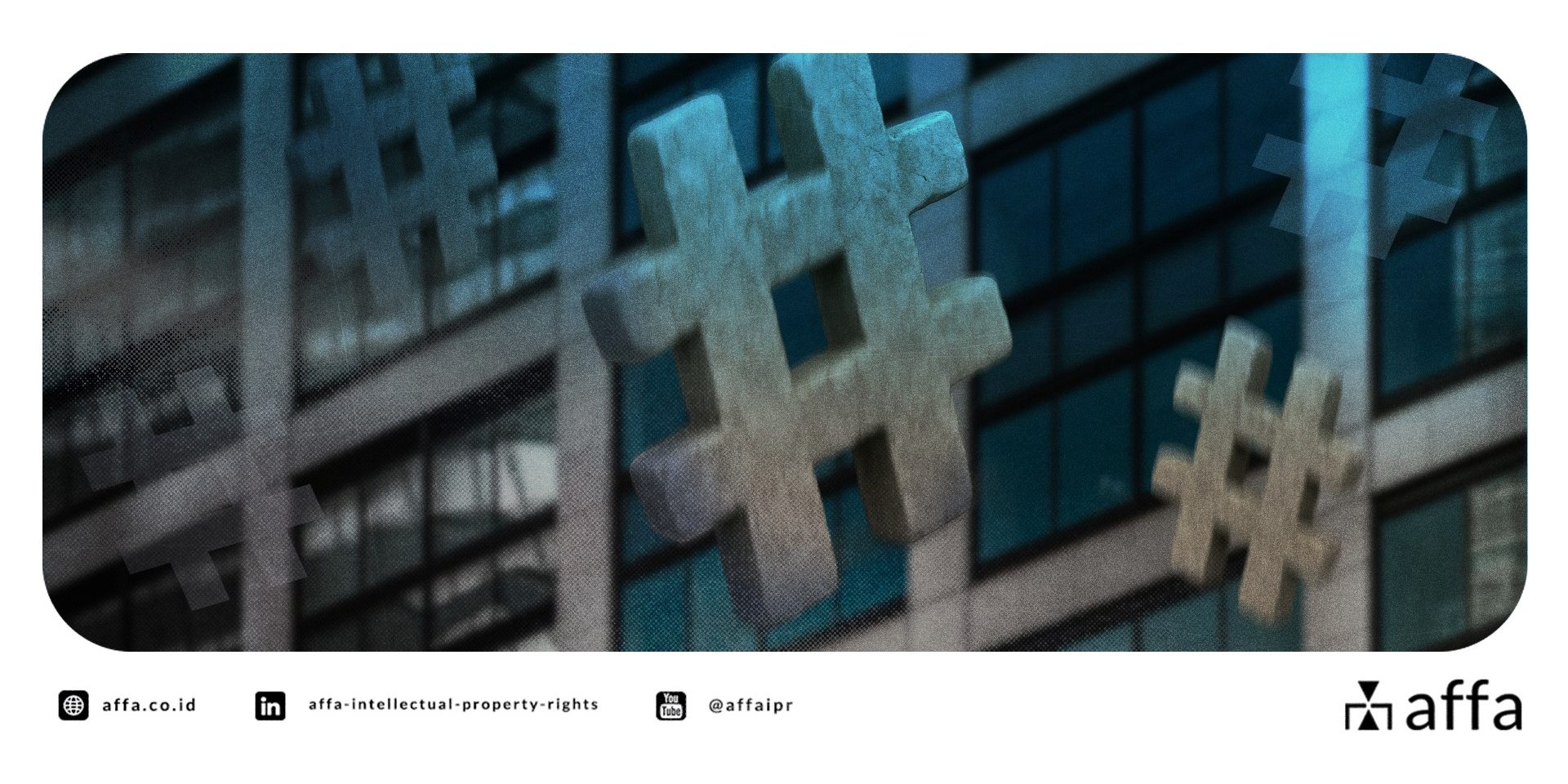In the digital era, hashtags (#) that precede certain slogans or statements have become an important tool in marketing strategies. They make it easier for the public to find specific campaigns on social media, strengthen promotional identity, and even build user communities.
Some examples of commonly encountered hashtags include:
- #FYP
- #photooftheday
- #KeepCookingMama
- #FreakyFriday
- #HowLowCanYouGo
However, when a hashtag grows more popular and becomes closely associated with the identity of a product or service—or there’s even an intention to monopolize it—the question arises: “Can a hashtag be registered as a Trademark?”
In Principle, Yes — But It’s Not Automatically Acceptable
By definition of the Indonesian Trademark Law, a Mark means any sign capable of being represented graphically in the form of drawings, logos, names, words, letters, numerals, color arrangements, in 2 (two) and/or 3 (three) dimensional shape, sounds, holograms, or a combination of 2 (two) or more of those elements to distinguish goods and/or services produced by a person or legal entity in trading goods and/or services. Nevertheless, in Trademark examination practice, the hashtag symbol (#) alone is not considered a distinctive element. In other words, when filing #HowLowCanYouGo, the examiner does not assess the “#” but evaluates the word elements “How Low Can You Go.”
Accordingly, a hashtag can be registered as a Trademark if the phrase within it meets the distinctiveness test as per Article 20 of the Indonesian Trademark Law, namely:
- Not generic
- Has distinctiveness
- Not descriptive
- Not merely a promotional call-to-action
- Not misleading
- Not to violate public order, regulations, or morality
If the phrase is too generic, the application risks being refused.
Hashtag + Removing Spaces Doesn’t Automatically Make It a New, Unique Word
There’s an assumption that a slogan will be easier to register if it’s written without spaces and prefixed with a hashtag, for example:
- “Indonesian Pride” → #IndonesianPride
- “Support Local Coffee” → #SupportLocalCoffee
However, this does not automatically turn it into a new, unique word. Examiners will still assess whether the phrase has distinctiveness. If the original meaning remains easily understood—e.g., as a promotional expression—its strength as a Trademark is still considered weak.
In short, adding “#” and removing spaces does not automatically increase the chances of registration!
Comparative Registration Chances
| Form | Example | Chance to be Registered | Reason |
| Descriptive Slogan | INDONESIAN PRIDE | Low | Generic phrase/ Promotion. |
| Without Spaces | INDONESIANPRIDE | Low-Medium | Meaning remains clear. |
| With Hashtag | #INDONESIANPRIDE | Low-Medium | “#” adds no distinctiveness. |
| Arbitrary/Fanciful Word | XYRANGER | High | Non-descriptive & unique. |
| Hashtag + Arbitrary | #XYRANGER | High | Strength lies in the core word. |
The core assessment remains the same: it’s not about the format, but how distinctive the phrase is.
How to Give a Hashtag a Better Chance of Being Registered in Indonesia?
If you want to protect a hashtag as a Trademark, consider:
- Using an arbitrary or unique word.
- Avoiding purely promotional phrases.
- Adding a distinctive brand element.
For example:
- #KROriginal
- #24hourbyMaduraShop
- #XyRangerEveryday
If the core wording has strong distinctiveness, the chances of successful registration are higher—even without the hashtag.
Therefore, if you use hashtags in marketing campaigns and want to protect them as a Trademark, ensure the wording is distinctive enough to differentiate your products or services from others.
Should you need more information on registering hashtags as Trademarks, contact us through the channels below and get a FREE 15-minute consultation!
? E-Mail : [email protected]
? Book a Call : +62 21 83793812
? WhatsApp : +62 812 87000 889







